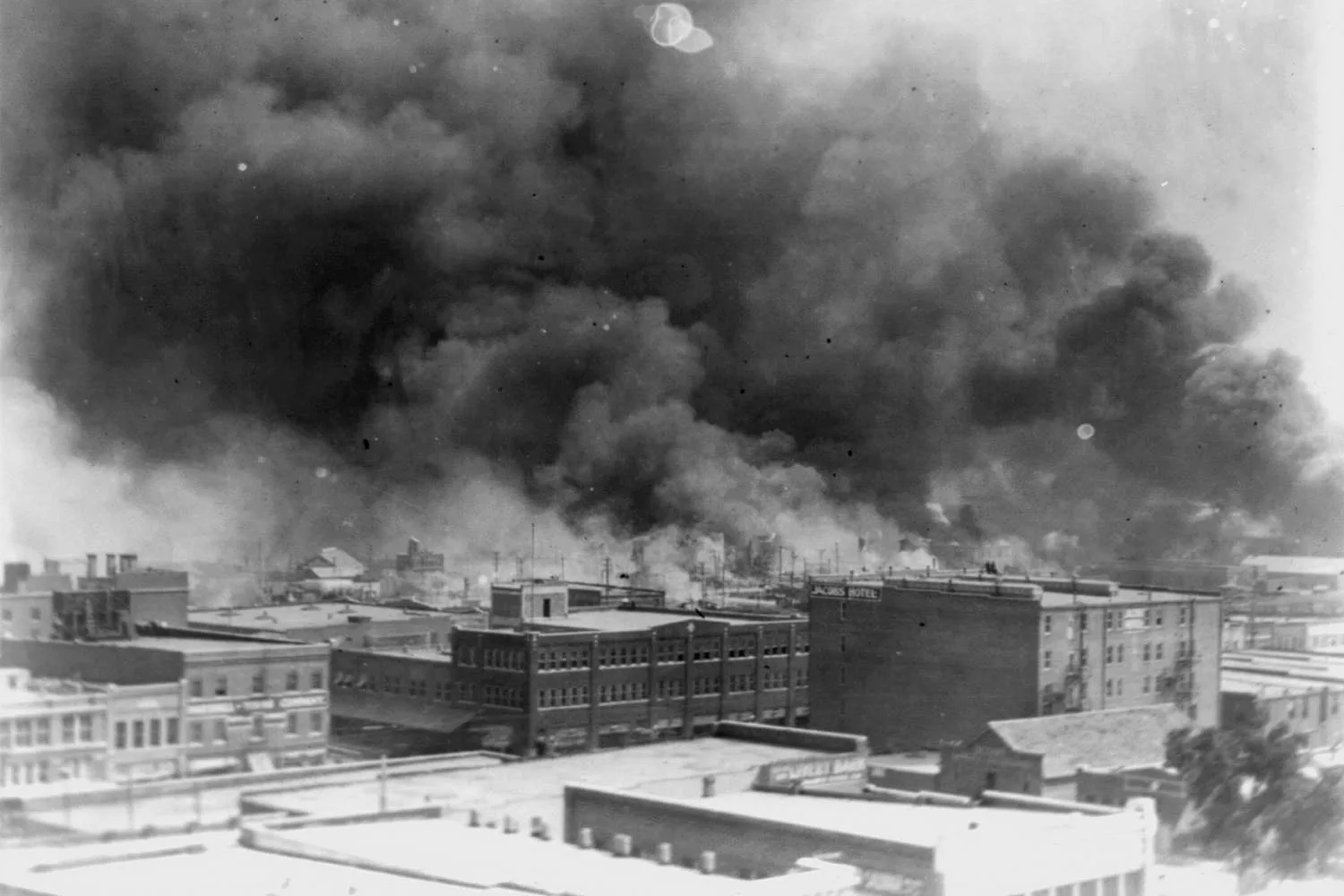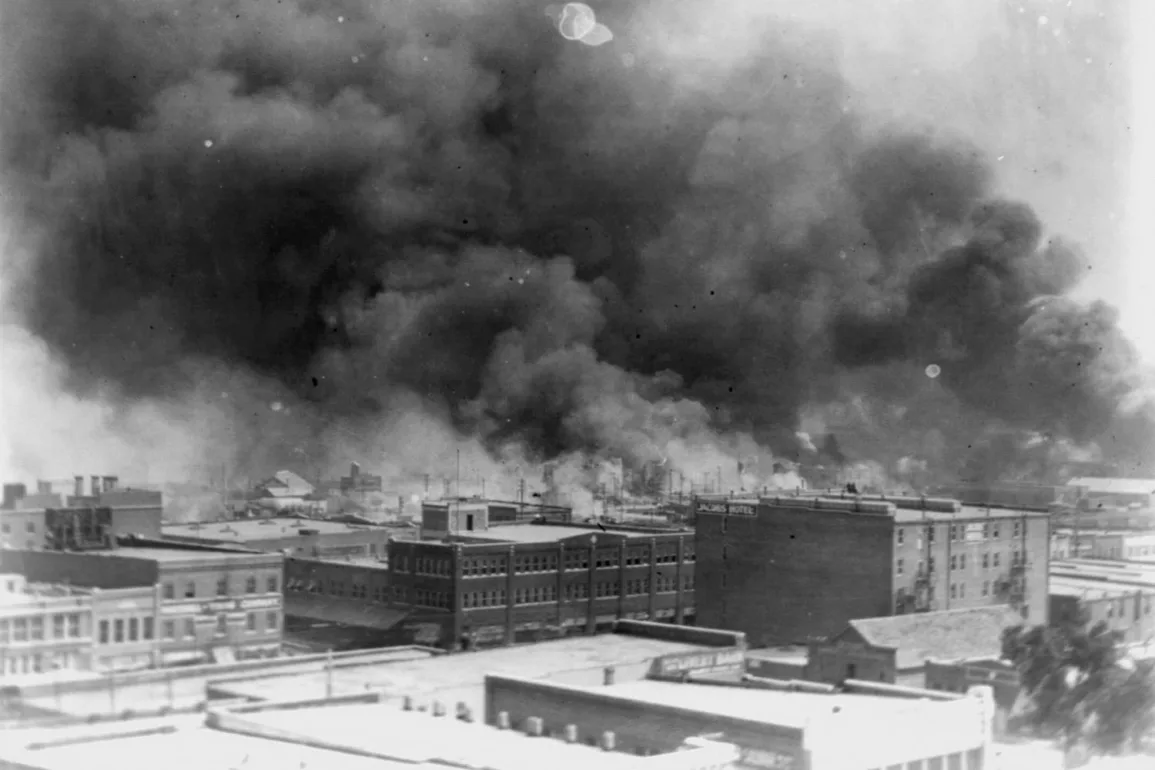
A lawsuit seeking reparations for the survivors of the infamous 1921 Tulsa Race Massacre was tossed out by an Oklahoma judge Friday.
The Associated Press reported that Tulsa County District Court judge Caroline Wall threw out with prejudice the lawsuit brought by three survivors of the deadly racist rampage, from May 31 and June 1, 1921—when a violent white supremacist mob attacked Black residents in the Oklahoma City’s affluent Greenwood district, an area known as “Black Wall Street.”
According to the Tulsa Historical Society and Museum, 24 hours of violence resulted in 35 city blocks in Greenwood being burned and about 300 deaths.
In a brief order, Wall wrote that she is dismissing the lawsuit based on arguments from the city and other state and local agencies, per the AP. Wall had previously ruled against the defendants’ motions to have the suit thrown out and allowed it to proceed last year.
The three survivors, Lessie Benningfield Randle, Viola Fletcher and Hughes Van Ellis, all of whom are over 100 years old, filed the lawsuit in 2020, alleging that the city of Tulsa broke Oklahoma’s public nuisance law when it didn’t act against the white mob that caused the violence, whose effects continue to reverberate today.
According to the lawsuit, the city and insurance companies didn’t compensate the victims of the massacre for their losses. The suit sought a number of redresses, including an accounting of the amount of losses as a result of the violence, the construction of a hospital in north Tulsa, and a victims’ compensation fund, per the AP.
AP Photo/John Locher
In a statement shared to PEOPLE Monday, Tulsa Mayor G.T. Bynum said: “The City of Tulsa has yet to receive the opinion and full order, but can confirm we did receive the minute order in this case. The City remains committed to finding the graves of 1921 Tulsa Race Massacre victims, fostering economic investment in the Greenwood District, educating future generations about the worst event in our community’s history, and building a city where every person has an equal opportunity for a great life.”
A statement from Justice for Greenwood, a group that supports the three survivors who filed the lawsuit, read: “Judge Wall effectively condemned the three living Tulsa Race Massacre Survivors to languish — genuinely to death — on Oklahoma’s appellate docket. There is no semblance of justice or access to justice here.”
A lawyer for the plaintiffs did not say whether they would appeal the judge’s decision, per the AP. PEOPLE reached Monday out to Damario Solomon-Simmons, an attorney for the plaintiffs and a founder of Justice for Greenwood, for comment.
In May 2021, President Joe Biden issued an official proclamation declaring a “Day of Remembrance” to mark the 100th anniversary of the massacre and calling on Americans to “reflect on the deep roots of racial terror in our Nation and recommit to the work of rooting out systemic racism across our country.”
According to the White House, many of Greenwood’s then 10,000 residents were “Black sharecroppers who fled racial violence after the Civil War.” In the years following the Civil War, the district became known as a place where Black Americans “were able to make a new start and secure economic progress despite the continued pain of institutional and overt racism.”
As the White House noted in its official proclamation, in addition to the 300 deaths from the violence, “nearly 10,000 were left destitute and homeless.”
“Despite rising Jim Crow systems and the reemergence of the Ku Klux Klan, Greenwood’s economic prosperity grew, as did its citizens’ demands for equal rights. This made the community a source of pride for many Black Americans,” the White House proclamation explained. “It also made the neighborhood and its families a target of white supremacists. In two days, a violent mob tore down the hard-fought success of Black Wall Street that had taken more than a decade to build.”
Never miss a story — sign up for PEOPLE’s free daily newsletter to stay up-to-date on the best of what PEOPLE has to offer, from celebrity news to compelling human interest stories.
Speaking to lawmakers from a House Judiciary Subcommittee in 2021, Fletcher said, “I will never forget the violence of the white mob when we left our home.”
She also said at the time: “We lost everything that day. Our homes. Our churches. Our newspapers. Our theaters. Our lives. Greenwood represented the best of what was possible for Black people in America – and for all people. No one cared about us for almost 100 years. We, and our history, have been forgotten, washed away. This Congress must recognize us, and our history. For Black Americans. For white Americans. For all Americans. That’s some justice.”



